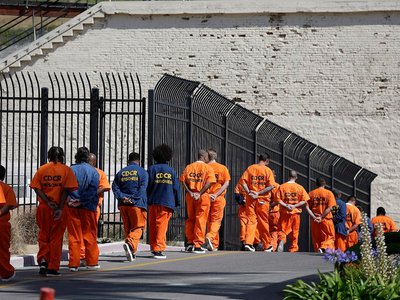What is the Hatch Act?
Passed in 1939, the Hatch Act - or “An Act to Prevent Pernicious Political Activities” - is a federal law designed to prevent federal government employees from participating in certain partisan election-related activities. The United States Supreme Court has upheld the Hatch Act’s constitutionality on more than one occasion.
One example of a federal employee who violated the Hatch Act is former Health and Human Services Secretary Kathleen Sebelius. The U.S. Office of Special Counsel determined that she had violated the Act in 2012, when she made partisan remarks during a speech in her official capacity at an event hosted by the Human Rights Campaign.
Why does it matter right now?
The Hatch Act prohibits federal employees from running for the nomination or as a candidate for partisan political office while employed by the federal government. There is speculation that this prohibition may be a problem for Richard Cordray - current head of the Consumer Financial Protection Bureau (CFPB) and rumored gubernatorial candidate in Ohio.
In 2009, the U.S. Office of Special Counsel said that the prohibitions of the Hatch Act don’t just occur once a formal announcemen of candidacy has been made; its rules also extend to the planning and preparations (“preliminary activities”) leading to an announcement of candidacy.
For months, talk of a Cordray gubernatorial bid has been running wild.
In July, WVXU openly speculated about a run, writing that “For a guy who refuses to talk about the subject, former Ohio Attorney General Richard Cordray has nearly everybody in Ohio Democratic Party politics expecting him to jump into the 2018 race for governor.”
Around that same time, the Cleveland Plain-Dealer ran a report with the headline “Richard Cordray is Running for Ohio Governor, Supreme Court Justice was Told.”
Just over a week later, the Cleveland Plain-Dealer also reported that Texas Congressman Jeb Hensarling called for a federal investigation into whether or not Cordray violated the Hatch Act.
What Happens Next?
Whether or not Cordray has violated the Hatch Act has yet to be determined. He gave a speech at an AFL-CIO event over Labor Day weekend, but declined to make a formal announcement.
The Republican Governors Association (RGA) has filed two requests under the Freedom Of Information Act (FOIA) for records relating to Cordray’s potential Hatch Act violation. “Ohioans deserve to know whether Richard Cordray is using his Consumer Financial Protection Bureau office for political gain at the expense of taxpayers,” said RGA Communications Director Jon Thompson.






